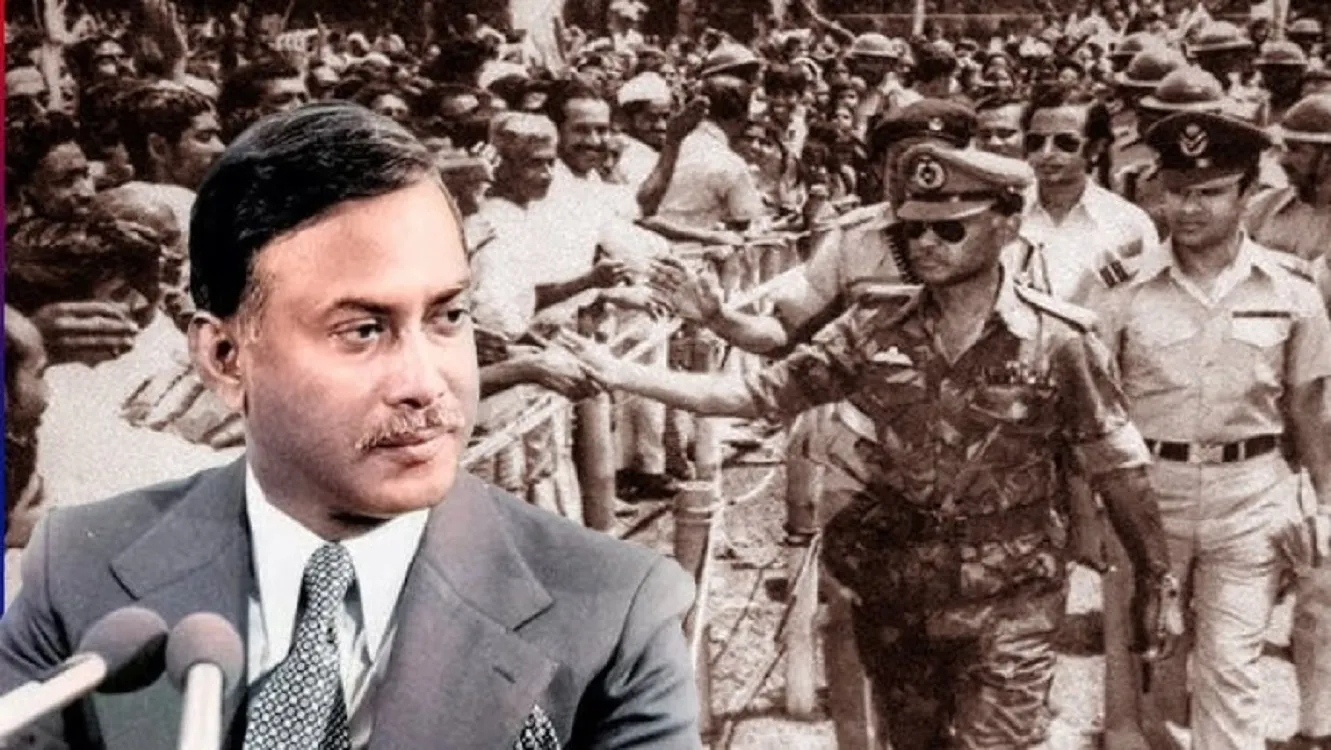- National
- Bangladesh
- Business
- International
- Sports
- Entertainment
- Politics
- Technology
- Life Style
- Religion
- Opinion
Tuesday, 03 March 2026



The historical significance of November 7, 1975, in Bangladesh, commemorating it as the "Soldiers and People's Revolution" a pivotal event that led to the emergence of Shaheed President Ziaur Rahman as a statesman and the de facto leader of the country.
The day began with thousands of people taking to the streets of Dhaka and elsewhere, celebrating the release of Ziaur Rahman from house arrest. The air was filled with chants like, "Soldiers and people are brothers; long live Bangladesh; long live Major General Ziaur Rahman; join hands - soldiers and people, unite!"
The revolution occurred amidst a period of extreme political instability and a chain of coups following the assassination of Sheikh Mujibur Rahman on August 15, 1975. The narrative frames the November 7 uprising as a counter-coup to the November 3 coup staged by Brigadier Khaled Mosharraf, who had arrested Ziaur Rahman and was perceived by some as attempting to bring the Awami League back to power with foreign assistance.
Ziaur Rahman, the then-Chief of Army Staff, was widely popular among the soldiers and the public. He was credited with having declared independence during the 1971 Liberation War a memory that resurfaced and galvanized support. His re-emergence on November 7 was viewed as a restoration of order and national sovereignty, lifting a "heavy stone" of uncertainty from the nation.
Colonel (Retd) Oli Ahmed and Major (Retd) Hafiz Uddin Ahmed provide eyewitness accounts. They state that ordinary soldiers, refusing to accept Khaled Mosharraf's coup, freed Ziaur Rahman. Major Hafiz mentions the involvement of Lieutenant Colonel Abu Taher and his 'Biplobi Soinik Sangstha' (Revolutionary Soldiers' Organization), which distributed leaflets opposing Khaled Mosharraf, claiming his coup was pro-India and pro-Awami League. Soldiers loyal to the August 15 mutineers, now leaderless, also joined the uprising. After his release, Ziaur Rahman quickly moved to restore the chain of command, refusing to be drawn into politics by Taher and eventually arresting and trying him and his associates to curb indiscipline, which had led to the killing of 13 innocent officers.
Political leaders like Mirza Fakhrul Islam Alamgir and Dr. Khandaker Mosharraf Hossain emphasize that the revolution was a turning point, paving the way for the end of one-party rule (BAKSAL) and the establishment of a multi-party governance system and the revival of democracy.
Political analysts and witnesses assert that under Ziaur Rahman's leadership after November 7, Bangladesh emerged as a stronger, more sovereign state, moving out of a state of chaos and uncertainty. The day is thus observed as a testament to national strength, unity, and the solidarity of the military and the people.
Comment